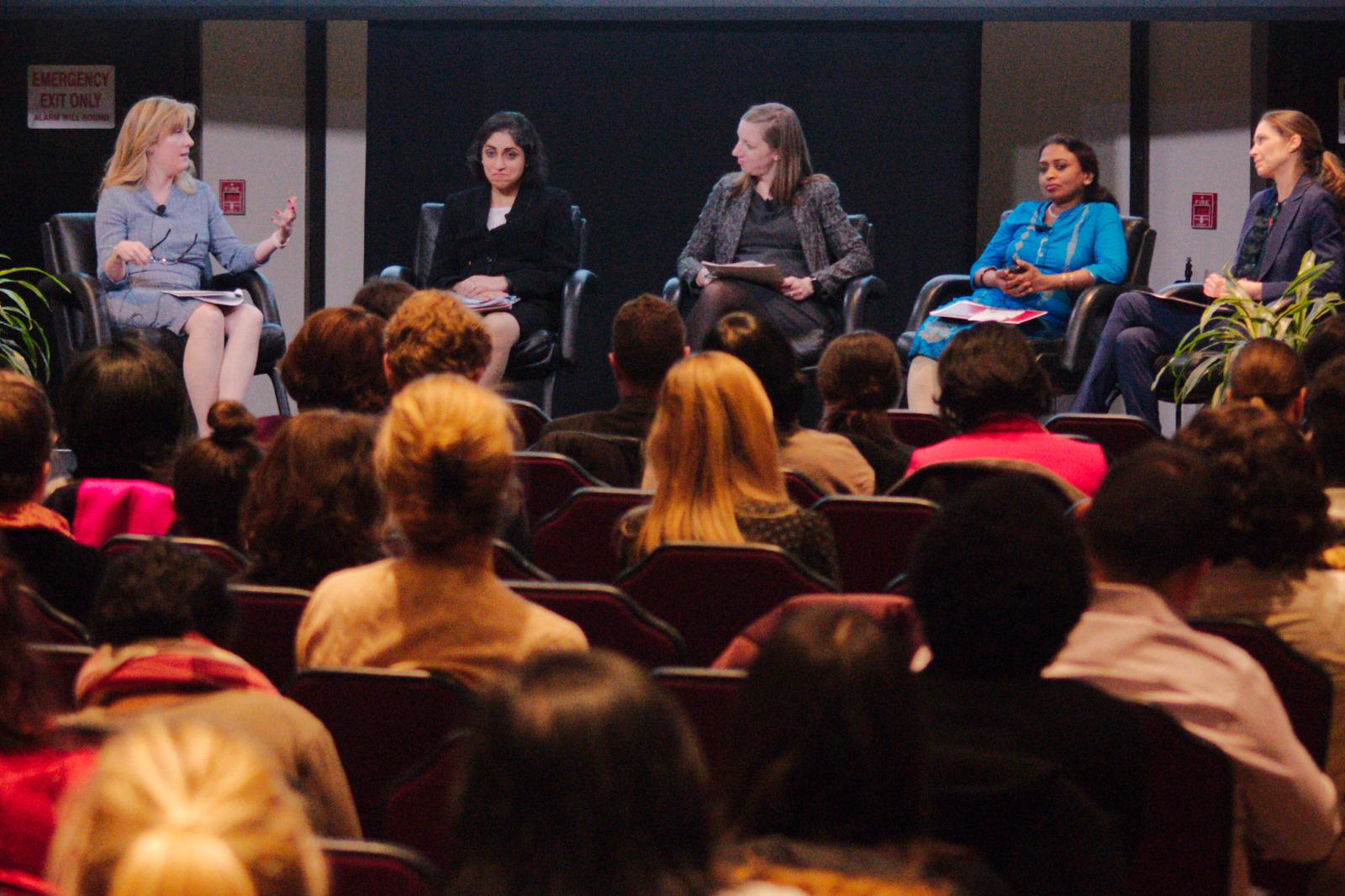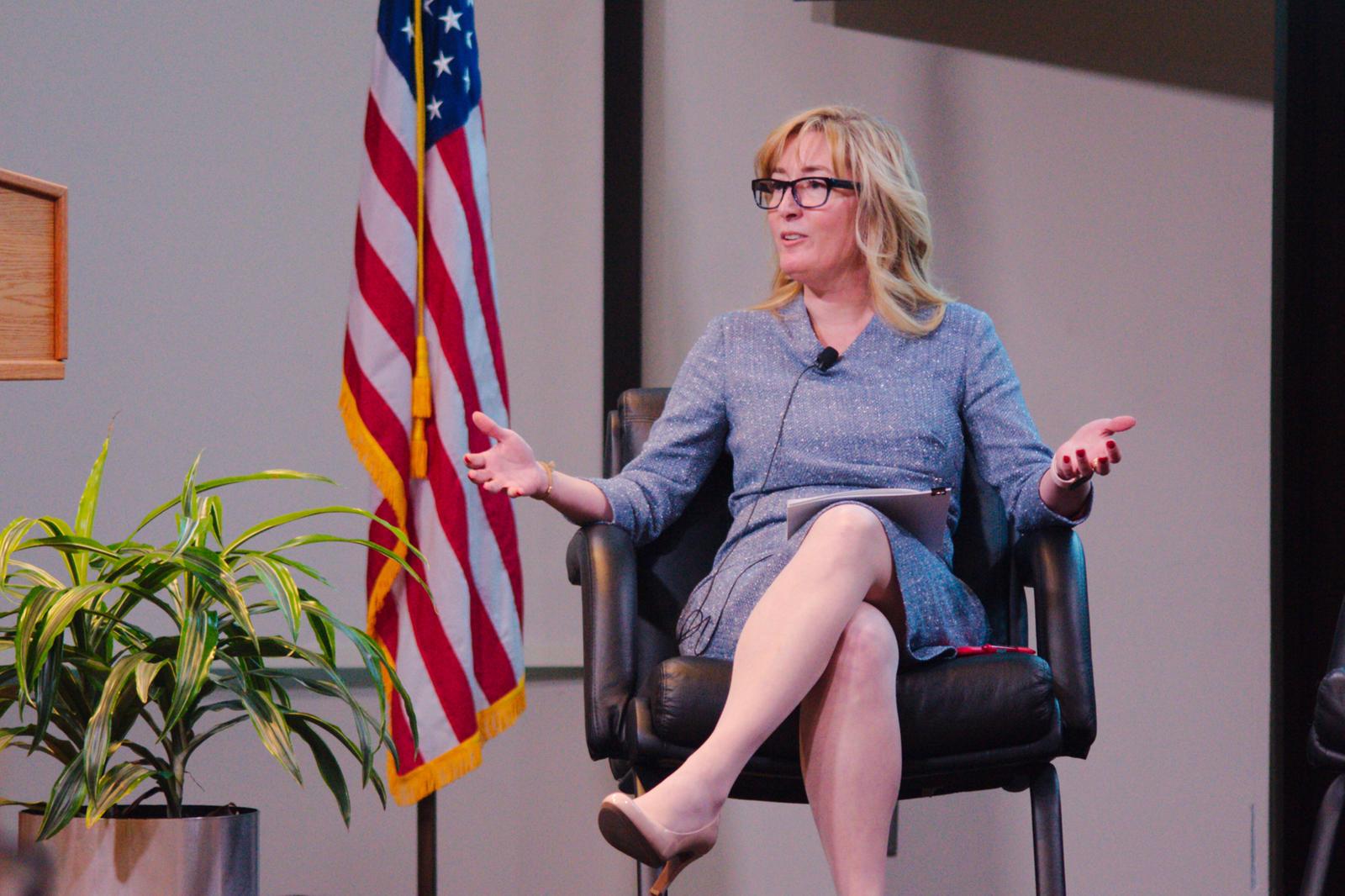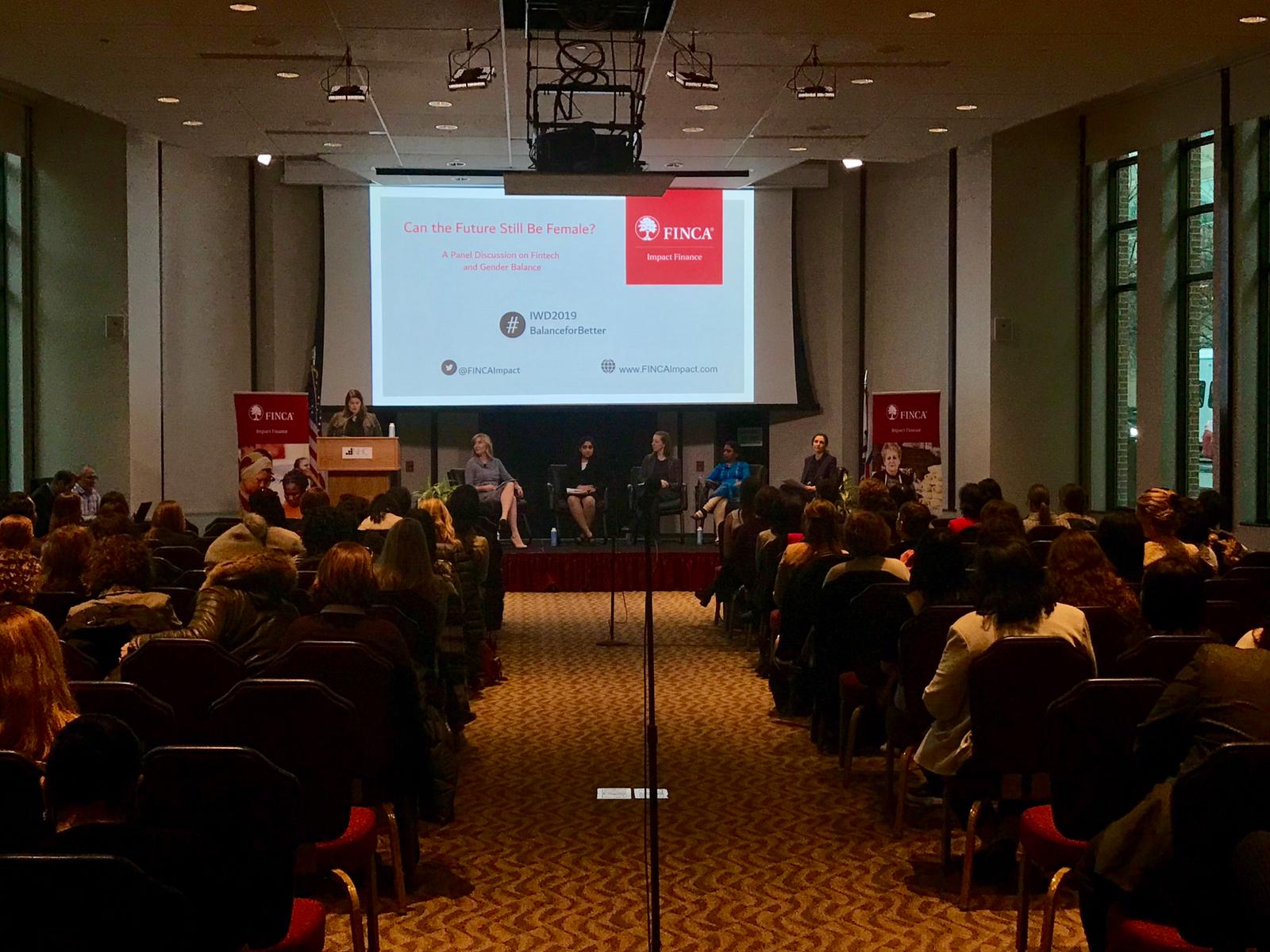Fintech and Financial Inclusion Could Help Close Gender Gap – IWD Event Recap
Worldwide, a man is nine percent more likely than a woman to have a bank account. That amounts to a gap of roughly 200 million people, and it persists despite overall progress in access to finance. In regions where women face particularly-strong barriers to economic empowerment—including Sub-Saharan Africa and South Asia—the disparities between men and women have actually widened since 2011.
Discussion of how fintech and financial inclusion can help close the gender gap took center stage at FINCA Impact Finance’s 2019 International Women’s Day event, Can the Future Still Be Female? A Discussion on Fintech and Gender Balance. FIF President & CEO Andrée Simon moderated the panel following opening remarks from FIF Vice President & COO Caren Robb. Panelists included Rosita Najmi of the Bill & Melinda Gates Foundation, Dr. Sonja Kelly of the US State Department, Bhavana Srivastava of MicroSave Consulting and Elissa McCarter LaBorde of the Vitas Group.
Taking place in Washington, DC, the discussion centered around a core question:
How can we leverage the power of fintech to empower women and help close the gender gap?

Closing the Remaining Gaps in Fintech and Financial Inclusion
Robb’s opening remarks focused on closing the remaining gaps in financial inclusion. That especially includes the gender gap, which she referred to as “a very large elephant in the room … I’m disappointed to say the gender gap remains a problem in some of the countries where we [FIF] operate.”
When prompted by Simon, Kelly addressed her own work, specifically a 2018 paper co-authored with Elisabeth Rhyne that identified some major gaps in the expansion of financial inclusion:
“We had really hoped we would hit full financial inclusion by 2020 … A lot of us hung our hats on fintech but it has been slower to scale than we thought it would.”
While the gap between women and men is a stubborn problem, Kelly explained, in absolute terms women are much better off than they were five years ago: “We have a lot to celebrate, even though the overall message is a bit sobering.” Moreover, she pointed out that while the global gender gap in mobile money accounts is 33 percent, the gap in mobile phone ownership is only 10 percent—meaning that while many women are behind the curve in financial inclusion, the power to change that is often already in their hands.
Najmi discussed some of the barriers preventing women from participating in economic life. In many places, women are denied the right to own and inherit property and even get an ID card. Fintech can help by putting financial services directly in the hands of women, shrinking the space for legal and cultural barriers to get in the way.
Srivastava argued that service providers need to improve how they approach those most in need of financial inclusion. In many countries, a large section of society (including women) are illiterate and/or innumerate, and most mobile apps and other fintech solutions are not properly designed for them:
“The solutions are great, but they don’t address the needs of the low-income segment … It’s very important the digital interfaces we create for low-income segments are properly designed for people who are illiterate and innumerate.”
LaBorde oversees a network of microfinance institutions in the Middle East, a region where the gender gap has widened as men tend to be the first to benefit from advances in fintech and financial inclusion.
While women’s access to finance has expanded in absolute terms, LaBorde pointed to an inherent problem. Financial institutions can make the biggest immediate impact by providing credit to small- and medium-sized businesses with growth potential and scalability. The problem is, the larger the enterprise, the less likely it is to be owned by a woman:
“What we see, is that as we move upmarket and target businesses that can really grow, we’re seeing the percentage [of women entrepreneurs] go down.”

How Can We Balance for Better?
Simon closed the discussion by asking each speaker to list tangible steps toward achieving greater gender balance. She answered her own question on behalf of FIF—this year the company integrated diversity into its performance management scorecard, meaning it is a company priority to focus on balancing gender representation at all levels of the organization and to develop financial services and delivery methods specifically for women clients.
Najmi pledged to balance for better by emphasizing that her organization, the Bill & Melinda Gates Foundation, works with governments to make regulatory systems more supportive of women’s economic empowerment. She also called on service providers to collect gender-disaggregated data to better understand the needs of female clients.
In her closing pledge, Kelly addressed the need to identify women ambassadors for financial inclusion and ensure that women receive the education necessary to participate in the economic sphere.
In keeping with one of the evening’s main themes, agency banking, Srivastava closed with a call to empower more women agents:
“How do we encourage women to become banking agents? Women agents tend to serve their customers better … Trust is greater when women clients are served by women banking agents.”
Simon also weighed in on agency banking, which she called “a huge bridge for people who are in need of financial inclusion.”
LaBorde spoke about changing things from the top down. In order to better serve women clients, financial institutions first need to ensure women are adequately represented in senior management and on boards of directors. Greater equality at the top is shown to flow downward and affect how firms approach women clients.
